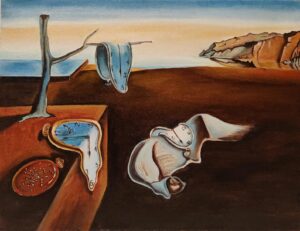

“You have your wonderful memories,” people said later, as if memories were solace. Memories are not. Memories are by definition the essence of times past, things gone. Memories are…the faded cracked photographs, the invitations to the weddings of the people who are no longer married, the Mass cards from the funerals of the people whose faces you no longer remember. Memories are often what you no longer want to remember.”
― Joan Didion, Blue Nights
Yes, Didion, her words veering toward the negative. Because loss is tragic, hard, challenging. She had longed for her husband, now for her daughter. That second loss truly shakes up the foundations she depended on, and I applaud her words as she searches for strength.
But can we be nostalgic when we are young? Oh, yes we can.
Anne Frank was, writing in her diary of days past, knowing those days were gone, that her world was imploding and that she might never again sit in a classroom, walk the streets of Amsterdam free and unhindered, look forward to love, marriage and children.
Anyone who looks back in longing–for a friend, a house, a parent, an experience, can feel and write about their longings–this is nostalgia. You want something back that you don’t want to forget.
CREATIVITY AND REMEMBERING
There was a time when I began to write, that nostalgia seemed to propel me. Why? I was young, and I saw that my experience was in some ways limited. Major changes in my life had already happened (loss of a parent, early responsibilities as a result). And I realized that I didn’t want to relive my childhood, but that it dwelled within me, making my losses and gains part of me. Yes…the engine of my creativity.
Because when you write, you are either pulling things out of your own experience, or you are making shit up. Both land on the page, and wow, you’re a writer. (Though not necessarily a good one, because it takes time, endurance, belief in what you have to say.)
SO WHAT IS THE ENGINE OF CREATIVITY?
When Author Ann Patchett (Bel Canto, The Dutch House, Commonwealth, Tom Lake) takes a memory and infuses it with meaning, she uses it in one of her novels. She describes her process this way: “I’m very sure that my memories are true and accurate, and if I put them up against the memories of my family or my friends, they would have very different true and accurate memories. Even if they differ…” Because we know that fiction comes from seeds of experience. IT COMES FROM LIFE, FROM LIVING. And what one person sees or hears or feels, can differ from another. (Same thing when writing a memoir.)
EVEN FICTIONAL CHARACTERS LIVE IN OUR MEMORIES
One of my favorite authors, Elizabeth Strout, discovered that her characters refused to stay within the pages of past books. Though Strout left her home in Maine for New York City, Maine stayed with her. So did the voice, the face, the life of Olive Kitterridge, the eponymous title of the collection of short stories that won Strout the Pulitzer for fiction. But Olive wasn’t finished. She continued to speak to Strout, and thus Olive Again came to be, stories that take us back to Maine, but also (and this is to amazing and clever) bring back characters from Strout’s other novels. It’s delightful for Olive to find herself living in the same senior facility as the mother from Amy and Isabel, that being only one example. After writing My Name Is Lucy Barton, Strout felt compelled to learn more about Lucy’s beginnings and sent her back to a small town in Illinois to reconnect with her siblings and others in a collection of stories, Anything Is Possible. We all do this: let our memories grow, fill out the stories of our lives, enhance them. At some level WE ARE ALL STORY TELLERS. So…
WRITE IT DOWN
Many of us kept or still keep a diary. It’s our lives on paper, our deepest thoughts and even our anger and our hurts. To us it is not fiction, but it can fuel fiction and it always comes from the power of memory.
Talk to an old friend. You will discover that the mention of a place, a high school crush, a certain teacher brings back a flood of memory. And though they aren’t always positive memories, they are part of our lives. Joan Didion wrote Blue Nights after losing her daughter. She wrote The Year of Magical Thinking after the death of her husband. Didion used the power of her memory, her pain to seek healing. Each and everyone of us is a vessel of stories. Write them down. They are part of you; they have power. Don’t lose that power.
artwork by Salvador Dali 

2 Responses
Nostalgia and memory are so poignant, I get misty-eyed thinking about it. I’ve kept a journal for 37 years and one of these days I’ll be brave and look at the very early volumes. Thank you for this reminder.
Oh I’m with you, Laurie, that’s why my desk is so cluttered with paper. Memories bind us to part of our lives, which go so fast.
Thanks for reading and posting, Beth